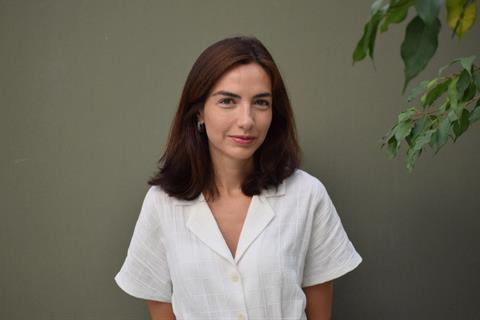
Tamara Tatishvili started full time as head of the International Film Festival Rotterdam (IFFR)’s Hubert Bals Fund at the beginning of January – just a few weeks before the festival kicked off.
For Tatishvili, the IFFR will be a “listening tour” – a chance to gather both feedback about the festival’s global film fund and ideas on how to adapt it for the future. “Having this avalanche of the festival edition right now gives me a very clear perspective of how the HBF is perceived,” says Tatishvili.
Tatishvili is a former director of the Georgian National Film Center and was most recently head of studies at Medici, the training and exchange forum for decision makers of international public film funds. She replaced Bianca Taal who had only taken over in 2022 following a major restructure at the IFFR.
She stresses, however, that she will not “rush into” changing things at HBF. The fund will carry out its 2024 activities in most part by following its existing guidelines to guarantee its smooth running for applying filmmakers.
Tatishvili explains: “I’ve been part of different re-organisations. And I know that revolutionary messaging of ‘We’re going to change things overnight’ never brings anything positive.”
Founded in 1988 and named after the first director of the IFFR, the idea behind the Hubert Bals Fund was to help filmmakers - mainly from what was then called the Third World - to get their film projects off the ground.
Today, the HBF supports projects by filmmakers from countries where local film funding, infrastructure or freedom of expression is lacking or restrictive. In practice this has meant it largely funds projects from Africa, Asia, Latin America, the Middle East, and parts of Eastern Europe. Tatishvili notes, though, that freedom of expression can be hindered everywhere, not just outside the European Union.
Recent supported titles include Lila Avilés’ Tótem, Malaysian filmmaker Amanda Nell Eu’s Tiger Stripes, Indian filmmaker Saurav Rai’s Guras, and Georgian filmmaker Elene Naveriani’s Blackbird Blackbird Blackberry.
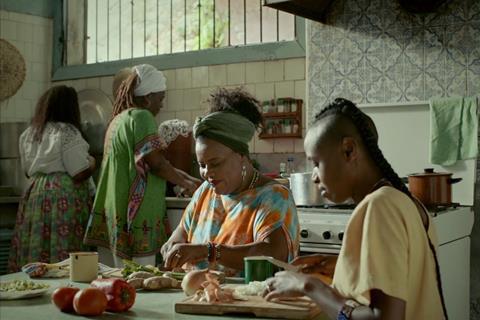
Playing in the IFFR’s Tiger competition this year, HBF has backed Brazilian filmmaker Julia De Simone’s Praia Formosa, about a Congolese woman trafficked to Brazil. The Bright Future programme, meanwhile, plays Toma Selivanova’s debut about the Russian gulag, Dolomite and Ash, also backed by HBF.
“What’s really beautiful about this fund – and also what attracted me to this position – is that it has a fantastic legacy,” says Tatishvili.
The Fund distributed €860,000 in 2022-23 to 32 film projects from 879 applications. The HBF offers several funding schemes: early on for development through its Script and Development Support, or later on for production and post-production.
As part of her listening tour at the IFFR, HBF is organising a closed door ‘think tank’ meeting with 20 professionals from sales companies and independent production companies.
She says she is prepared for both positive and ‘constructive’ feedback. “Maybe some of the deal-making is a little bit outdated, or something didn’t work. It might not be in relation to HBF, because funding strategies have changed.”
She notes that HBF is not as heavily regulated as public or regional funds “so we could potentially onboard some of those needed amendments here and there in a more flexible way.”
Of course, Tatishvili has some areas that she wants to actively explore too: Which territories HBF can create a real impact in today? And how do you classify which countries are deserving of funding?
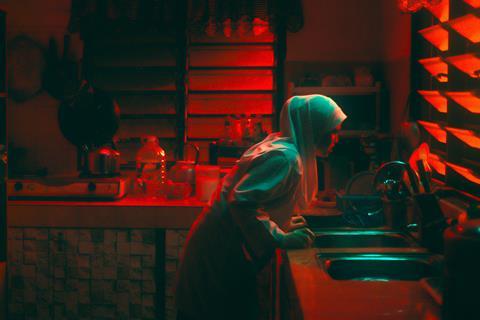
At a time when the whole film funding model is under discussion – amid budget cuts by national bodies and the arrival of the streamers - she also wants to understand where “festival-nested” funds like HBF sit in the funding landscape. Could a festival fund be a bit more flexible and quicker in meeting the needs of filmmakers?
She notes that streamers can make funding decisions in a matter of days or weeks, but many funding bodies can take up to a year to do so, amid multiple deadlines and long application processes.
She also asks what kind of independent filmmakers HBF should be backing. “The first thing I faced when I arrived here was that HBF got over 600 applications for its development fund – and the reality is that we can finance 10. It’s crazy. It’s amazing the filmmakers are so eager and they put such trust in us. But we are also human beings, and it is tough to select 10 out of 600.”
Some of these themes will be explored at IFFR Pro, where the HBF will host an event on the changing public funding landscape. Strategic creative economy expert Juliane Schulze will deliver a keynote, while national funding bodies from four countries – the UK, Luxembourg, Norway and the Netherlands - will take part in a panel that explores how their funds are adapting.
Meanwhile, two HBF supported projects will be presented at IFFR’s co-production market CineMart: Cloud of the Unknown, by Yuan Gao, which received development support in 2019 and A Distant House Smokes on the Horizon, the first fiction feature by Tiger Award-winning Chinese filmmaker Shengze Zhu.
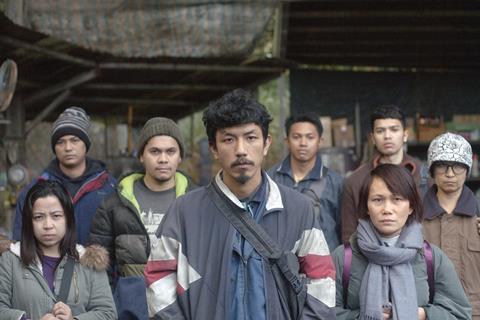
Darkroom, IFFR Pro’s work-in-progress programme, also presents nearly-completed former CineMart and HBF projects. One of the projects presented is HBF-backed Mongrel, directed by Taiwan-based Singaporean filmmaker Wei Liang.
Tatishvili sees IFFR and Cinemart as a “home-base” for HBF. “It was always that way and always will be that way,” she says.
Some films, like Blackbird Blackbird Blackberry, will receive development funding from HBF and go on to be selected for the CineMart co-production market.
However, Tatishvili stresses that HBF is a “different animal” from IFFR because it works through the whole year. The films it funds may also premiere in different festivals, not just IFFR. “There is the strongest ever relationship and that should always be there,” she says. “But we will also need to elevate the presence of HBF in some other places.”











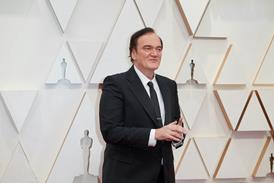























No comments yet